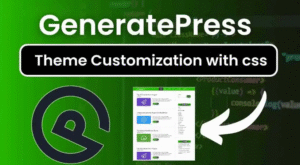Are you interested in investigating other platforms outside Medium, particularly for the purpose of posting articles and blog posts? If you are just starting out in the realm of blogging for beginners, you may be searching for a platform that is simple to use and Some Medium Alternatives to share information with others. Gaining an understanding of the best Medium Alternatives will make your search for the most suitable blogging platform much simpler.
Table of Contents
What exactly is the medium?
When Evan Williams, one of the co-creators of Twitter, established Medium in 2012, it quickly became one of the most popular alternatives to Medium. In addition to serving as a central location for both short and long-form writing, this platform is designed to accommodate a wide range of content providers, such as academics, opinion leaders, and journalists. With an emphasis on social journalism, Medium gives a forum for authors to share their greatest ideas and start significant discussions. One of the primary elements that sets Medium apart from other blogging platforms is that it works as a distribution conduit for content rather than a separate website.
Key Features of Medium
One of Medium’s major qualities is its vast viewership, which covers the world. Writers on Medium have the ability to reach a large audience and engage with readers from all backgrounds and interests. The platform is continually expanding and growing, making it an appealing alternative for content providers wishing to extend their audience.
Medium vs. Traditional Blogging Platforms
Unlike typical blogging platforms like WordPress or Blogger, Medium functions differently. When you publish anything on Medium, you are effectively putting it on a platform that belongs to Medium itself. This implies that you won’t have your own independent website to operate but rather a profile on Medium where you can share your work with the platform’s audience.
Benefits of Medium
One of the biggest advantages of using Medium, a blogging site, is the visibility it delivers. With millions of users accessing the site monthly, Medium presents a unique chance to engage with a varied audience and achieve attention for your work. Medium is noted for its clear and user-friendly layout, making it easier for authors to concentrate on generating content without becoming bogged down by technical minutiae.
Considerations for Writers
Before getting into Medium as a blogging platform, it’s vital to acquaint yourself with the site’s standards and terms of service. Understanding how Medium runs and what is expected of authors will help you make the most of your time on the site. Exploring various Medium alternatives might give you a better understanding of the possibilities and help you pick the blogging platform that best meets your requirements.
Exploring Medium Alternatives
While Medium is a popular option for many authors, some alternatives are worth examining. Platforms like WordPress, Wix, and Blogger provide different features and functionality than Medium, enabling authors to personalize their websites and have greater control over their material. By investigating these choices, you may select the platform that corresponds with your blogging aims and tastes.
Medium provides a fresh approach to blogging that varies from standard platforms. By knowing how Medium functions and investigating various blogging choices, you can pick where to share your writing and connect with your audience. Whether you want to publish on Medium or another site, the objective is to discover the blogging solution that works best for you and supports your goals as a writer.
Benefits of Using Medium
No Need for Your Own Website
Medium provides a stress-free option for technophobes who wish to start blogging. You won’t need to bother about putting up a website or dealing with web hosting providers.
Enhance Brand Awareness
By utilizing Medium, you can boost your brand’s exposure and reach a broader audience. You may attract readers who will consider you as a thought leader in your sector.
User-Friendly Platform
Medium’s editing tool is straightforward, making it easy to build your blog. You may publish quotations, share media, reblog, and link to other posts without the need for technical expertise.
Join a Prestigious Community
Medium is home to significant voices, such as CEOs and opinion leaders. You may receive visibility and work with other authors in your profession by posting your blog on the site.
Monetize Your Content
With Medium’s partner program, you may make money by making your work unique to Medium subscribers. You’ll get a part of the membership costs paid by readers who connect with your postings.
Notion to SEO-Friendly Blog
Feather is an SEO-friendly blog that lets you create blog articles using Notion, and it needs no coding or design abilities. Feather lets firms compose blog material on Notion and instantly post it to their Feather blog. Feather enables you to build a subfolder blog (domain.com/blog instead of blog.domain.com, since subfolder is better for SEO).
Feather allows organizations to receive the HubSpot experience via Notion by enabling them to handle all their CRM and website blog administration using Notion. We also give opportunities to update design with custom CSS, gather emails, and much more. Write on Notion and instantly have it published to an SEO-friendly blog. Collaborate with the whole team simply throughout the publication process.
Try Feather’s thought-to-blog program for free now—establish a new account and go from notion to blog in minutes!
Why Consider Medium Alternatives for Blogging?
Content Ownership
Owning your material is vital since it allows you control over what happens to it. If you write on Medium, you risk losing everything if the site chooses to shut down or prohibit your blog.
Metadata Control
Having control over metadata is vital for SEO. Custom meta titles and descriptions may make your material more enticing to prospective readers. You don’t get this control on Medium.
The Aggregator Penalty
Google prioritizes sites with high-quality pages. Medium’s site, “medium.com,” hosts all articles, which might reduce the average value of your content and make it tougher to rank on Google.
Lack of CTA Ownership
The fundamental purpose of a company blog is to attract consumers. With Medium, you can’t integrate unique calls to action like newsletter sign-ups or product trials, hurting conversion rates.
No Tracking Pixels
Retargeting readers with advertising using tracking pixels may be beneficial. Unfortunately, you can’t put tracking pixels on Medium, restricting your advertising prospects.
Top 15 Medium Alternatives site
1. LinkedIn
LinkedIn is a social networking site that establishes and fosters professional relationships and networks. Apart from networking, LinkedIn provides a number of online learning courses, both free and paid, for upskilling, earning certifications, and increasing employment chances. The platform contains posts on its official blog page regarding workplaces, jobs, and job searches, making it a fantastic resource for career and self-improvement information.
LinkedIn is a wonderful tool for publishers wanting to market their brand and develop a community of prospective consumers. Publishing an article on LinkedIn favorably improves your professional profile, providing you an edge in job searches and freelancing prospects.
2. HubPages
HubPages is a direct alternative to Medium, allowing possibilities to make money via display advertisements and suggesting Amazon items. While it may not equal Medium’s built-in readership, HubPages gives greater SEO control. Users may optimize their material to reach a bigger audience via search engines.
With HubPages, paid content isn’t confined to paying users, motivating the use of SEO and social media to attract external traffic. Earnings on HubPages may reach roughly $50-$100 per month, with the possibility for larger revenue via increasing traffic. If your primary aim is to generate money, try developing your own affiliate marketing website for larger income potential despite the intricacy required.
3. Vocal.Media
Vocal.Media is a website that honors writing talents via regular writing contests with cash awards. The site provides rewards ranging from $500 to $10,000 or more. Vocal.Media gives authors a fixed payment depending on the amount of readings their works get, possibly earning $3.8 per 1000 reads or $6 per 1000 reads as a Vocal+ member. Writers may enhance profits by creating more readers with appealing headlines and social media marketing, with the option of collecting tips from interested readers.
4. Dev Community
Dev Community focuses primarily on developers, delivering useful articles on different programming languages, frameworks, libraries, and other technologies. Besides blogs, the portal provides podcasts, videos, manuals, software comparisons, job ads, and mentors to enhance developers’ learning journeys.
Dev Community is a perfect place to increase your abilities, whether you are a rookie or a seasoned developer. Like Medium, publishers may write blogs following DEV’s rules and norms and publish them to share knowledge and code with the community. DEV Community supports networked learning among software engineers.
5. Blogger
Powered by Google, Blogger is a user-friendly blogging platform with configurable designs and seamless integration with Google services. The platform is great for people wanting a free, friendly online community to create their own blog. Blogger provides a variety of features and a straightforward structure, making it easy to build a blog without technical skills. Blogger is an amazing solution for anyone wanting to start a blog free of charge using Google services and a helpful online community.
6. Tumblr
Tumblr is a popular blogging platform ideal for users who prefer not to maintain own blogs. Comparable to Medium, Tumblr offers a wide audience that may find your material, making it a fantastic alternative for creative and amusing publications. The platform is great for short-form material such as tales, images, GIFs, and jokes. Users may customize their Tumblr profile to represent their personality as writers and artists, allowing for creative expression and involvement with the audience.
7. Notion
Notion, noted for its productivity tools, includes content publishing capabilities, enabling users to easily transform any Notion page into a published blog using the user-friendly editor. Notion websites are growing popular for many uses, including as blogs, portfolios, and documentation. While quickly sharing pages is a feature of Notion, it may not be feasible for creating a dedicated following at scale. Integrating Notion pages with Feather may convert them into fully functioning blogs or websites, boosting users’ authoring experience.
8. Write.as
Write.as is a simple platform for authors to submit blogs, newsletters, and diaries with a beautiful user experience that emphasizes simplicity and negative space. Ideal for people seeking a Medium-like platform, Write.as enables users to publish pieces online while staying anonymous. Users may collect writings without joining up, allowing quick publishing on the web. Although Write.as may not be as well recognized as other platforms, its membership plan may come with a greater cost.
9. Substack
Substack has gained appeal as a platform that streamlines publication and monetization for independent authors. With a business model based on reader subscriptions, Substack allows authors to profit from direct reader support rather than conventional advertising. Substack helps turning active followers into paying subscribers, giving a potentially valuable income stream. Writers may opt to post articles for free or behind a paywall for subscribers, enabling flexibility in content monetization.
10. Ghost
Ghost, an open-source blogging platform, enables users to establish self-hosted blogs without platform restrictions, allowing complete control over content revenue via different paths. Beyond content production, users may monetize their blogs via display advertisements, affiliate revenues, newsletters, and paid subscriptions.
While self-hosted blogs take more setup, users benefit from greater SEO skills, sophisticated analytics, and the ability to modify and optimize their material for organic traffic. Ghost provides a robust platform for authors eager to handle their blogs autonomously.
11. WordPress
WordPress, a well renowned content management system, features comprehensive templates, a feature-rich editing interface, and innumerable plugins to enhance website construction. With estimates that 43% of the web is built on WordPress, the platform presents a good alternative to Medium for professionals eager to personalize and manage their websites.
WordPress provides a selection of themes for customization, both free and paid, along with connectors with multiple platforms for scalability and feature additions. WordPress is a flexible platform for those wanting a customized, feature-rich website-building experience.
12. Steemit
Steemit, a blockchain-based site akin to Reddit, allowing users to submit short—and long-form material, which is especially enticing to cryptocurrency and blockchain aficionados. Prioritizing openness and freedom, Steemit compensates members based on user interaction, giving huge income prospects. With monthly traffic nearing 4.2 million, Steemit delivers exposure and interaction possibilities, making it an appealing platform for consumers interested in blockchain technology and cryptocurrencies.
13. Hashnode
Designed for engineers and tech lovers, Hashnode provides a specialized location for posting and sharing technical material with a smooth blogging experience. Users may post directly on their domain or use Hashnode’s domain for free, with support for markdown style for technical documentation.
Hashnode interacts with popular platforms like GitHub, and provides features like as custom domains, SEO optimization, and newsletter integration, making it a great option for connecting with a particular community of developers and IT professionals. With a monthly traffic of about 1.2 million, Hashnode gives a chance to interact with a huge audience focused on technical information.
14. Bear Blog
Bear Blog provides a Markdown-based writing experience for simple article production, emphasizing a clean and minimalistic appearance accentuating the written content. With a strong emphasis on privacy, Bear Blog does not feature adverts or third-party monitoring, guaranteeing a distraction-free writing environment. The site caters to individuals wanting a clear and privacy-focused blogging experience, making it suitable for authors prioritizing content production without external interruptions.
15. Pixpa
Pixpa simplifies the art of blogging with a number of new features, delivering an easy drag-and-drop interface for seamless customization. Users can construct visually attractive blogs without coding experience, owing to Pixpa’s responsive design, which provides a faultless blog look on any device. The platform increases the reader experience by concentrating on visually beautiful blogs that are simple to explore and interact with. Pixpa is an ideal solution for individuals wanting a user-friendly and visually engaging blogging experience.
Which Medium Alternatives Are Right For You?
Anything online is essentially about choosing the ideal platform for you. Consider what your strengths are and move from there.
Matching Skills and Preferences
For example, if you’re a brilliant writer but you really don’t want to market yourself or you don’t want the trouble of having to build up your own website and design it, then a pre-monetized platform like HubPages can work well for you. On the one hand, if you enjoy marketing and attracting visitors to your site, you may raise your revenue higher on a self-hosted blog platform like Feather.
Financial Considerations
You should also examine your ambitions and start-up expenses. How much money are you willing to invest to get started? If the answer is nothing, seek for a direct Medium replacement that lets you to start producing and profiting without investing anything.
Maximizing Reach and Income
It’s also worth noting that if your objective is to generate a full-time income from writing online, you have nothing to lose by publishing across numerous platforms. You may post on Medium and have your own Feather site or, of course, utilize any alternative to Medium. You may utilize one to divert traffic to the other and vice versa.
Conclusion About Medium Alternatives:
There are plenty of alternatives to Medium that offer the opportunity to reach a wider audience and potentially increase your income. By diversifying where you publish your work, you can maximize your reach and attract new readers. Whether you choose to invest in starting your own website or utilize free platforms, the key is to experiment and see what works best for you. Don’t be afraid to try out different options and see where you can find the most success as a writer.








